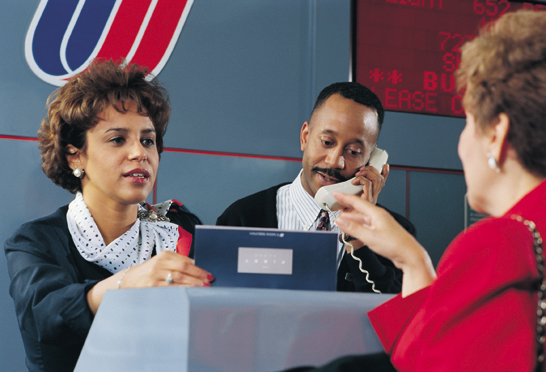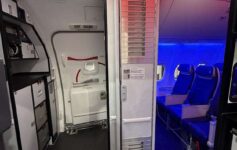Mention “Honolulu Call Center” to any frequent United Airlines flyer and you will see a smile and hear a story about how Team HNL has worked magic or gone the extra mile to save a trip. For United’s valuable Global Services members (a small group of top-spenders), mention Detroit and you’ll hear about a dedicated team of men and women who know their customers so well that Christmas cards are exchanged. Mention Jeff Smisek, though, and you’ll hear a deafening groan, despite record profit from UA. Why? Here’s one reason — United has announced plans to shutter the Honolulu and Detroit call centers.
Detroit will close by March 2016 and Honolulu by June 2017.
Here’s how UA spins it–
We are making significant technology investments to support our Contact Centers and have chosen not to renew our leases at the Detroit and Honolulu facilities, allowing nearly all of our employees to work from home.
Agents will be given the option to work from home for about a 15% pay cut or transfer to another call center. Home workers must purchase their own computers if they do not own one. The Houston and Chicago call centers will grow and a dedicted Global Services team will be transplanted to Houston.

These are airport agents, not call center agents, but I liked the retro picture, courtesy of United
A Plea to United Airlines
There are all sorts of pros and cons to a call center. On the plus side, call centers present the ability to quickly coordinate and ask questions and that, along with assigned seating and coffee/lunch gab fests breaks leads to higher employee morale. On the flipside, I work from home and love it — there is nothing like staying in pajamas all day (which never happens for me anymore, because my wife drags me to gym at 6am each morning, but I digress…) and not wasting hours each week (or day for those stuck on H1 in Honolulu) commuting. The company saves on rental costs and you can theoretically be more productive with your time. So let’s call it a draw.
Frankly, I don’t care whether these agents are at home or in the Ala Moana Shopping Center (site of the current call center and also home to one of the few staffed United ticket offices left in the U.S.), I just care about continuing to work with these agents, for by and large they are truly gems. I really don’t mean that as a tacit disparagement against agents in Chicago or Houston, but as a special compliment to the agents in Detroit and especially Honolulu. You can always tell when an agent cares, and these agents care.
CONCLUSION
Last time UA threatened to close the HNL Call Center, the then-senior Senator from Hawaii, Daniel K Inouye pressured UA to reverse course. Inouye was a powerful politician who served in the Senate from 1963 to his death in 2012 and Hawaii’s current two Senators, both having been in office for less than three years, likely lack the clout to pressure UA to change course. Then again, the offer on the table this time around is not to eliminate jobs, just to close a call center.
I’ve been so wrong about UA’s enhanced meal improvements and just about every other “enhancement” so don’t hold it against me that I am skeptical about this news, but I can only implore UA to do everything in its power to ensure the exceptional agents of Honolulu and Detroit remain onboard.




Wow, one more awesome thing that Dan Inouye did. Cool Senator, or the coolest Senator?
Another disappointing change. Totally not surprising that GS is moving to IAH…
Alaska has had 80% of their agents working from home since 2008. The program has also increased agent retention. Voluntary attrition is less than 2 percent. Most agents have been on board an average of eight or nine years; several have been with the company 20 years or more. They are, for the most part, the most efficient, knowledgeable and friendly group working for any airline as evidenced by being #1 in the JD Power’s survey for 8 years. They are awesome over the phone! It depends on corporate culture, team spirit and who is leading the show; United is a poor example
Alaska Airlines has had a good culture for many years. The company doesn’t try to save money at the expense of customer service. Since the “merger,” this is no longer the United Air Lines or Continental Airlines we have known. If the Board of Directors are awake, they may actually see how low the
“New United” has sunk. Look at the statistics in Air Transport World and see how UA fares against the legacy carriers . . . last in almost every category . . . on time bag delivery, customer satisfaction, on time arrivals, passenger complaints, etc.